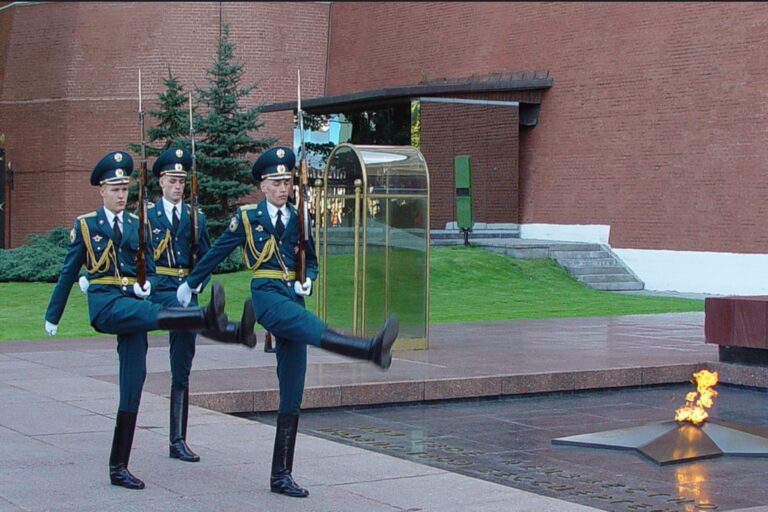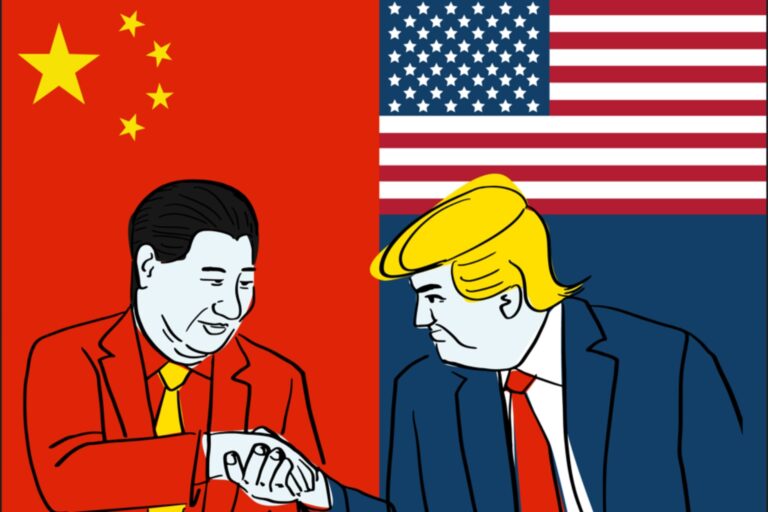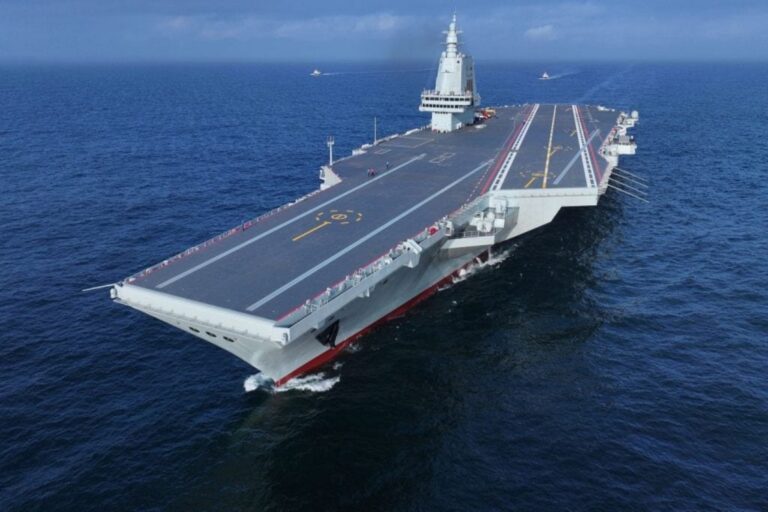Michal Bokša is a graduate of the University of Cambridge (MPhil in International Relations and Politics) and currently a lecturer within the Central and East European Studies Program (CESP) at the University of Economics in Prague. He is specializing in international security with research and analytical experience from NATO Defense College, NATO Supreme Headquarters Allied Powers Europe and Organization for Security and Co-operation in Europe.
At no point in modern European history have the people of Ukraine occupied as important a role in European geopolitical developments as they do today. Although not yet immediately apparent, the 2014 overthrow of President Viktor Yanukovych and the political and economic transformation – whether it proves successful or unsuccessful – will have greater geopolitical consequences than European policy makers often assume. Should Ukraine become a new Eastern European transformation success story, its example could critically undermine authoritarian regimes in neighboring countries such as Belarus and the Russian Federation. If Ukraine’s transformation fails, its example will deliver a shattering blow to those calling for increased liberalization in remaining illiberal states across Eastern Europe.
Although the European Union-Ukraine Association Agreement, which finally entered into full force on September 1, 2017, marks a step in the right direction, it is still far from certain that Ukraine’s transformation will succeed or that a thriving future lies ahead. The coming years will ultimately determine not just the future of Ukraine itself but, due to the impact Ukraine’s transformation will have on the entire Eastern European region, also the future political landscape of the European continent.
This article argues that, while Western policy makers severely underestimate the geopolitical importance of Ukraine, Minsk and Moscow do not. Further, it argues that in order to establish the political and economic environment most conducive to Ukraine’s success, the European Union (EU) must offer clear and concrete proposals for future cooperation and further integration.
Ukraine’s Role in European Geopolitical Landscape
Ukraine’s transformation is geopolitically significant because a successful transition into a democratic and economically prosperous state could in the medium- to long-term spark similar transitions throughout Eastern Europe—while a failed transition could seriously hinder them. Success would be especially important for those societies in which democracy did not take hold after 1989 and where illiberal regimes continue to justify their existence as an economic and political necessity. Consequently, any positive developments in Ukraine after Yanukovych was ousted would have negative ramifications for authoritarian elites in Minsk and Moscow, who still maintain the narrative that Western-like reforms will only bring about economic hardship and internal tumult. Should Ukraine’s transformation fail, hence implicitly corroborating aforementioned narratives, illiberal regimes of Eastern Europe will become further entrenched. Their ruling elites would find firmer ground for suppression of political opposition groups which push for similar liberalization processes and reforms.[1] Such a scenario would deliver a damaging blow to Western political values and economic principles, thus further diminishing their attractiveness on the international stage.
The Ukraine of tomorrow can thus be viewed as a blessing or a curse, depending both on the end result of current reforms and on one’s perspective—that of a liberal or illiberal government. Becoming a symbol of struggle between liberalism and illiberalism, Ukraine has inadvertently turned into an essential player in shaping the future of European continent over the upcoming decades. It is no surprise that the Russian Federation actively aims to weaken and disrupt the current government in Kiev, providing support to Eastern Ukrainian separatists, opposing the International Monetary Fund’s financial loan disbursements, and exacerbating the Russian-Ukrainian trade war.[2][3] On the other side stands a hesitant EU whose approach toward Ukraine has, unfortunately, been not only lukewarm at best but also fraught with often incoherent policies lacking deeper consistency.
The EU’s Role in Ukraine’s Future
The essential flaw of the EU’s approach is its own vague and obscure vision of what the ultimate relationship between the EU and Ukraine should be. Brussels has often indicated its intention to strengthen ties with Kiev; nonetheless, it has consistently withheld from making firm promises of EU membership.[4] Yet, a clearly articulated prospect of partnership or even full EU membership would buttress domestic transformation and stabilization, as already seen during the 1990s in Central Europe, notably in the Czech Republic, Hungary, Poland, and Slovakia. In fact, it was primarily a vision and possibility of EU membership that led post-communist Central European countries to implement key political and economic reforms.[5] Nevertheless, if the EU is currently not in a position to offer Ukraine a path to EU membership, then it should still aim to establish concrete prospects for other forms of close partnership. For the sake of drawing attention to the benefits of the political shift from illiberalism to liberalism, the European Union must clearly and firmly communicate its support for Ukraine’s reform. Moreover, it must resolve its current ambivalence, which destabilizes and undermines domestic Ukrainian pro-reform sentiments.
A key example of the EU’s mixed signals was a disagreement among the EU members over the wording of the final summit communiqué following the 19th EU-Ukraine summit held in Kiev in July 2017. The communiqué was not issued because one group of officials insisted on including more explicit language to stress that the Association Agreement did not automatically guarantee EU membership.[6] Similarly, a Dutch “no” vote on the non-binding referendum on an EU free-trade area with Ukraine in April 2016, as well as the European Union’s repeated delays of visa-free travel, have undermined Ukraine’s reform process. An increasing number of Ukrainians feel that their enthusiasm for deeper integration with Europe is unrequited.[7]
EU ambivalence leads to increasing Ukrainian disenchantment with the EU; this disenchantment in turn weakens Ukraine’s political drive for the reforms, required for continued EU support, which Ukraine desperately needs to adopt. Brussels should therefore strive to outline concrete proposals and options that would clearly indicate what Ukraine, should it continue to adopt and effectively implement necessary reforms, may expect in return for its efforts, and in what time horizon. With an Association Agreement now fully in force, such an approach is even more critical as such proposals would constitute new, concrete, and attainable milestones in EU-Ukraine cooperation. Such milestones would provide invaluable incentives for continued transformation, and ultimately bolster the likelihood of success.
The EU has several options. The establishment of a Customs Union between the EU and Ukraine and Ukraine’s participation in the European Schengen open-border zone are two viable alternatives that could become new objectives for EU-Ukraine cooperation. Notably, President Petro Poroschenko has expressed interest in these two specific aims, and has also indicated interest in becoming a part of the European digital market or the Energy Union.[8] The EU ought to be open to, or even better, initiate, such proposals, while also remaining strict and consistent in demanding that Ukraine continues to deliver on its other promises, reforms in particular. No progress on other issues can be made if Ukraine fails to continue its internal transformation.
Nonetheless, it is worth noting that enticing incentives, such as budget support, grants, loans and more open trade between the EU and Ukraine would not be panaceas to Ukrainian ills. Helping Ukraine establish an environment conducive to a successful transformation, for instance through the elimination of trade barriers, is one thing. Making the transformation successful is another.
The EU has already become Ukraine’s largest trading partner, accounting for 41.6 percent of its trade in 2017.[9] Trade has been bolstered by the Deep and Comprehensive Free Trade Agreement (DCEFTA) which has been provisionally in effect since January 2016. However, the majority of Ukrainian exports have been raw materials such as agricultural or mining products—products with relatively low added value.[10] Consequently, the success of Ukraine’s transformation will still depend crucially on Ukrainians themselves and their ability to take full advantage of all present opportunities, especially those provided by the Association Agreement. Internecine political discord, however, deeply inhibits Ukraine’s capacity to implement vital reforms—namely, those that would clamp down on excessive corruption and allow businesses to flourish. This incapacity currently epitomizes the most fundamental threat to the success of Ukraine’s transformation.
Between Russia and the West
What of the Russian Federation’s goals? It is important to understand that the Russian Federation does not aim to undermine the current government in Kiev to such an extent as to turn whole Ukraine into a failed state. Contrary to a common belief, as for instance observed by Atlantic Council,[11] a highly destabilized or an outright failed state Ukraine would be unfavorable even to the Kremlin: such a scenario could only yield problems, and potentially crises, that the Russian Federation would inevitably have to become involved in, ranging from an East Ukraine refugee crisis to amplified international drug and human trafficking. All possible outcomes could only impose additional financial burden on Moscow.[12]
Instead, the Kremlin simply aims to prevent Ukraine from becoming a new Eastern European liberalization success story. Ukraine’s failure would certainly thwart further EU-Ukrainian rapprochement and a Ukrainian path into the West. But its success would not only help its own people; it would encourage domestic political opposition across the region, in the Russian Federation or Belarus in particular, to be firmer in its protests – and more justified in its claims of the benefits of liberalization.
Finally, the West in general and the EU in particular must fully realize the importance of the transition that is currently occurring in Ukraine, including its ramifications for broader European geopolitics. Accordingly, the EU should take action to establish as conducive an environment for Ukrainian transformation as possible, including by increasing its financial support and further opening its market, hence, allowing Ukraine to integrate even further. It must at the same time avoid ambiguity and mixed signals, and seek to establish new concrete, attainable milestones in EU-Ukrainian cooperation in order to create further incentives for reforms. Such purposeful engagement and incentivization would allow those Ukrainian politicians pushing for further reforms to make tangible promises, with realistic expectations. Such progress would also prevent further disenchantment with the EU among the Ukrainian public.
Ultimately, regardless of the Russian Federation’s or the EU’s actions, Ukrainians themselves remain the key drivers of the change currently taking place in Ukraine. Whether successful or not, the outcomes will not only affect Ukrainians but will fundamentally influence the geopolitical landscape of the European continent for decades to come. The West, in particular the EU, must do everything in its power to help the Ukrainian people achieve success.
Footnotes
[1] Mikhail Fishman, “Who Is Terrorizing Russia’s Opposition and Why Is No One Being Held Responsible?”, The Moscow Times, May 3, 2017, accessed May 22, 2018, https://themoscowtimes.com/articles/who-is-terrorizing-russias-opposition-and-why-no-one-is-being-held-responsible-57895.
[2] Darya Korsunskaya, “Russia Says to Oppose New IMF Aid Tranche to Ukraine”, Reuters, September 12, 2016, accessed May 22, 2018, https://www.reuters.com/article/us-ukraine-crisis-russia-eurobond-idUSKCN11I1A1.
[3] Andrew Mayeda, “Russia Said to Plot Strategy to Block IMF Lending to Ukraine”, Bloomberg, November 11, 2015, accessed May 22, 2018, https://www.bloomberg.com/news/articles/2015-11-10/russia-said-to-plot-strategy-to-block-imf-lending-to-ukraine.
[4] Robin Emmott, “Ukraine’s Promise of EU membership remains elusive”, Reuters, November 24, 2017, accessed May 20, 2018, https://www.reuters.com/article/us-ukraine-crisis-eu/ukraines-promise-of-eu-membership-remains-elusive-idUSKBN1DO18R.
[5] See, for example, Democratic Progress Institute, “The role of European Union Accession in Democratisation Processes”, 2016, accessed May 22, 2018, http://www.democraticprogress.org/wp-content/uploads/2016/06/The-role-of-European-Union-accession-in-democratisation-processes-PROOF1.pdf.
[6] Daniel Szeligowski, “PISM Spotlight: 19th EU-Ukraine Summit”, PISM, July 14, 2017, accessed May 21, 2018, https://www.pism.pl/publications/spotlight/no-40-2017.
[7] David Stern, “Ukrainians Fall out of Love with Europe”, Politico, January 11, 2017, accessed May 20, 2018, https://www.politico.eu/article/ukrainians-fall-out-of-love-with-european-union/.
[8] UNIAN, “Ukraine Intends to Join Customs Union with EU – Poroshenko”, July 13, 2017, accessed May 21, 2018, https://www.unian.info/politics/2027046-ukraine-intends-to-join-customs-union-with-eu-poroshenko.html.
[9] European Commission, “Ukraine – Trade Statistics”, accessed May 21, 2018, http://trade.ec.europa.eu/doclib/docs/2006/september/tradoc_113459.pdf.
[10] Ilya Timtchenko, “Much work to be done to up Ukrainian exports”, KyivPost, March 23, 2018, accessed May 21, 2018, https://www.kyivpost.com/business/much-work-done-ukrainian-exports.html.
[11] Ihor Kozak, “The Kremlin’s Dangerous New Threat in Ukraine”, Atlantic Council, December 21, 2015, accessed July 27, 2018, http://www.atlanticcouncil.org/blogs/ukrainealert/the-kremlin-s-dangerous-new-threat-in-ukraine.
[12] For more on potential financial costs in regard to Eastern Ukraine, see Paul Roderick Gregory, “Putin’s Promises To Eastern Ukraine Could Bankrupt Russia”, Forbes, May 1, 2014, accessed May 22, 2018, https://www.forbes.com/sites/paulroderickgregory/2014/05/01/putins-promises-to-eastern-ukraine-could-bankrupt-russia/#435e9da86c62.
Top image from Contropiano and used under Creative Commons license for reuse (https://creativecommons.org/licenses/by-nd/2.0/).



